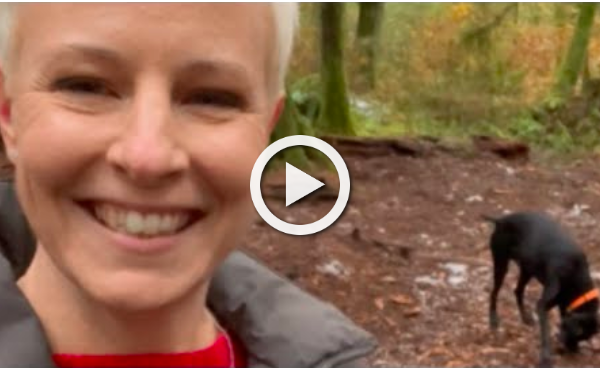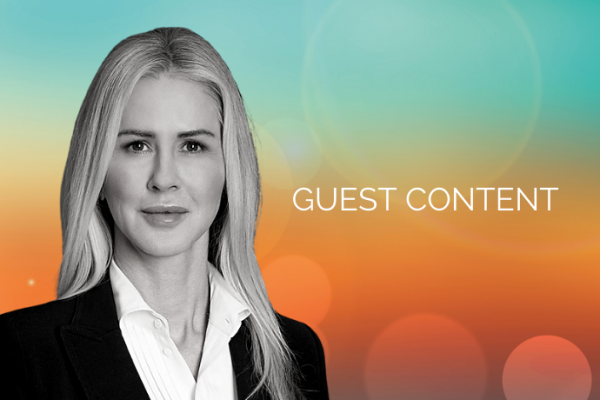Companies that want to change the world need to be a meaningful part of the solution—and not just a smaller part of the problem. Sally Uren, CEO at Forum for the Future, explains.
What can business leaders do to address social and environmental challenges within their organizations?
I’m going to push back a bit on your question, and suggest that business leaders actually need to look beyond their organizations and consider how their companies can put more back into society and the environment than what they take out. At Forum for the Future we call this ambition “net positive”—the state in which you are not only ensuring economic viability, that is, you are making money, but you are also making the world better—ecologically and socially—than it would be if your business did not exist. I say this because the fact is, the stocks of our natural assets and societal assets are dwindling and we need to rebuild them. We just can’t assume business as usual will deliver the sustainable development goals anymore.
That sounds like a tall order, and perhaps a bit tricky for some companies to wrap their heads around. Are some better positioned for this approach than others?
At Forum For the Future, we tend to engage with businesses that understand that success comes from solving complex sustainability challenges in a way that builds value back into the business. Beyond that, I would look for willingness in the company’s leadership to embrace the four principles that we think of as kind of prerequisites for a net positive company.
And those are?
Well, first there’s materiality. Where can your business can make a big positive social and/or environmental impact? What are the big levers you have to work with? Second, transparency. Are you willing to speak openly and honestly about those challenges, and how as a business you’re addressing them? Then there’s regeneration. Where are those opportunities to restore damaged ecosystems, to actually rebuild some of the systems that we rely on? Finally, a company needs to be prepared to embrace systemic thinking. It needs to really understand the system it operates within, and address social and environmental challenges such that it builds resilience.
You’re talking about characteristics that may already be hard-wired into a company’s culture. For example, a brand built on confidentiality and discretion may have a hard time really embracing transparency. It sounds like this is about the people, the leadership, the tone they set, and the culture they create?
If an organization really wants to embrace sustainability, it is going to need to embrace a shift in mindset and culture. Companies and organizations need to really understand that their ability to drive value is inextricably linked to these big environmental and social challenges. And that actually helping to restore the systems that we rely on is a fast track to long-term value creation.
Tell us more about the systemic characteristic of a net-positive company. How might that play out in the real world?
Let’s say you run a business in the agricultural system. Clearly, you’re heavily reliant on the productivity of crops, and access to raw materials such as seeds, and water, and healthy soils. And, if as a business you don’t really understand how that system works and what it’s going to take to secure your supply over the long term, then, actually, there’s a really significant threat to your business. One of the projects that we run at Forum for the Future is called Cotton 2040, where we’re working with a range of apparel brands, retailers, standards bodies—essentially, everyone—to bring them together to “mainstream” sustainable cotton. The organizations involved in that project understand that their financial viability is already linked to the vibrancy and resiliency of the cotton system.
Why is it a cotton system, not a cotton industry, or sector?
Industry doesn’t really adequately capture the complexity of value-creating relationships which underpin the delivery of goods and services to market. A sustainable cotton system that is climate resilient and delivering sustainable livelihoods to millions is much more fit for the future, and far better positioned to deliver on the United Nations Sustainable Development Goals. So, we can create what we would call systemic change by understanding the levers that might create a new way of operating, a different way of interacting. And that’s what business leaders should be driving for. With incremental change, we’re not addressing the root causes of challenges, we’re just putting bandaids on some of the systems. That isn’t going to deliver the sustainable development goals.
Why did you choose to focus on cotton?
Cotton is ubiquitous, it is in most of the clothes that we wear, and yet it is associated with some really significant sustainable development challenges. It has environmental challenges because it can be quite a water hungry crop, and is also grown in parts of the world likely to be significantly impacted by climate change. There are also big societal challenges with respect to working conditions, living wages, and so on. We also came to this system out of a recognition that there are efforts already underway in the cotton system, but they’re not necessarily “joined up.” If we find a way to link these existing activities – for example, by harmonizing the language between all the different,cotton standards – then perhaps we can create a blueprint that we can replicate across other commodities.
Are we seeing more collaboration between competing brands on sustainability. If so, why?
It’s taken a while, but many businesses are starting to recognize that many challenges—particularly supply-chain challenges—are just too big for one brand to tackle solo. There are areas where you can use sustainability to compete and to differentiate your brand. However, when we’re tackling issues as complex as labour rights, climate adaptation of a global crop, like cotton, then actually brands need to collaborate.
Could blockchain help ensure supply-chain accountability in an industry—sorry, a system!—like cotton?
I’m convinced blockchain will form at least part of the future of supply chains, and it also has applications in finance. It’s effectively just an open ledger that allows transactions to be recorded in a completely open and secure fashion. So yes, it allows us to deliver complete transparency through a supply chain. But it might also be used to deliver access to capital and to reduce the price exposure that smaller players face in buying commodities. Blockchain won’t solve all of our challenges, but I do feel it can help us get closer to sustainable supply chains.
What other emerging technologies are on your radar these days?
I’m quite intrigued in the potential to merge blockchain with the internet of things. So blockchain, actually as an open ledger, gives you transparency. If that open ledger can talk to the internet of things, then you potentially end up with a much smarter supply chain. I’m also really intrigued by this trend we are seeing where distributors can become “light manufacturers,” meaning we may no longer be so reliant on large-scale manufacturing. The technology is now there to move from globalized infrastructure to much more localized infrastructure. Digital printing has really evolved over the last few years and is now used in many different applications. There are lots of ways in which the way goods and services make it to market could really radically change.
I’m curious about what advice you offer organizations and leaders who are ready to take on a net-positive approach. How do you message this stuff?
Communicating sustainability is no different than communicating anything else. It’s about good storytelling, and about making people feel good, and speaking to their aspirations. Don’t appeal to gloom and doom—the sense of what we stand to lose. Rather, appeal to people’s desires to live better. This is about making people feel good about what they’re doing. People don’t want to be told what they can’t do; they want to hear what they can do.
This article is part of our new six-part content series, “Echoes of the Forum”, which provides exclusive videos, interviews, and key takeaways and actions from our world-leading sustainable business event – GLOBE Forum.
Our second chapter focuses on the role of business in accelerating the clean economy.
View content




